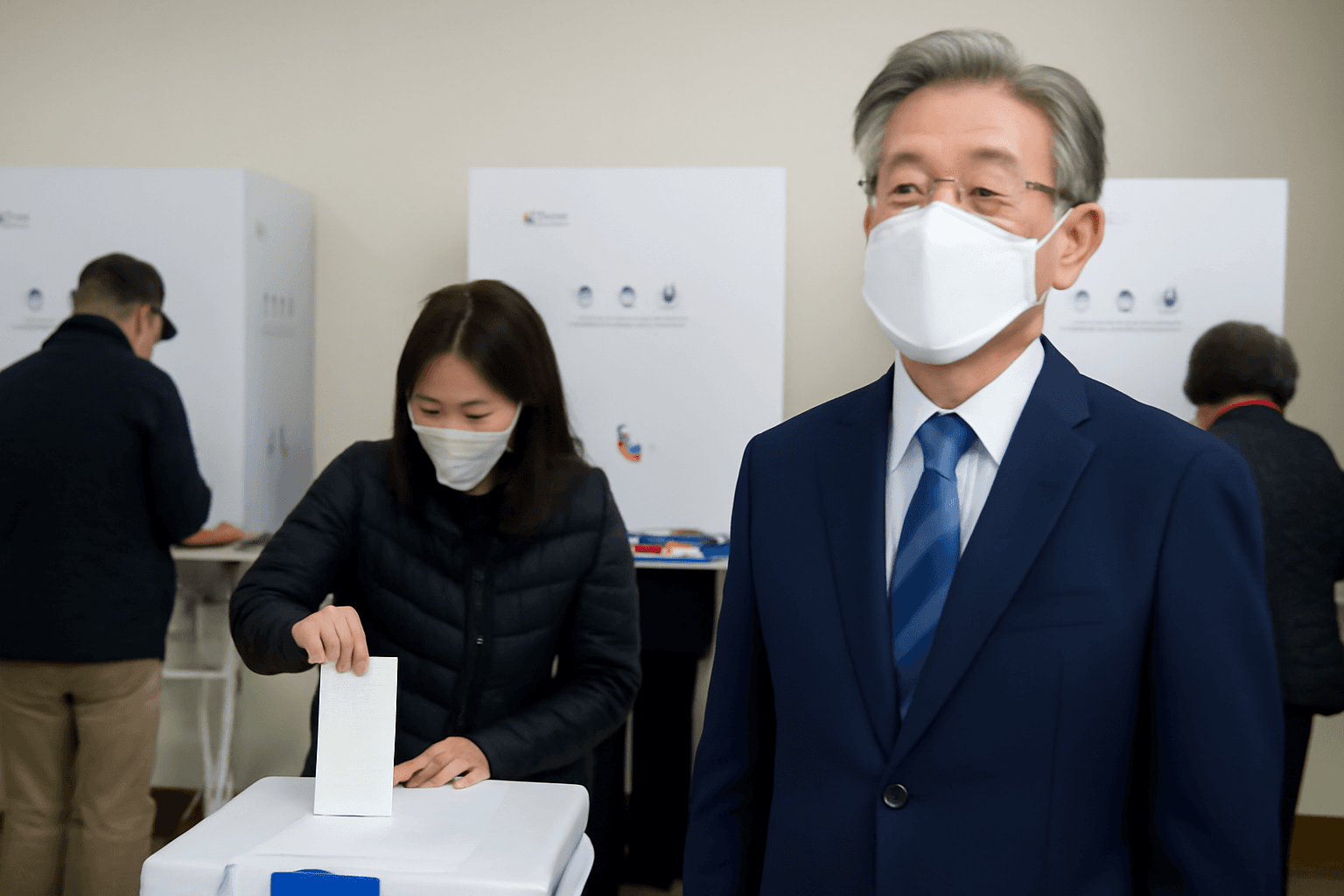South Korea witnessed an unprecedented voter turnout during the early voting days for the upcoming presidential election, held against the backdrop of a highly controversial martial law declaration by former President Yoon Suk Yeol.
The early voting, conducted on Thursday and Friday before the official election day on June 3, recorded participation from 21% of the 44.4 million registered voters, marking a historic level of electoral engagement, according to Seoul's National Election Commission. Notably, overseas voting reached an all-time high, with approximately 80% of 1.97 million eligible expatriate voters casting their ballots last week.
This election follows months of political instability prompted by Yoon Suk Yeol’s suspension of civilian rule, which culminated in his impeachment and removal from office. South Korea has since experienced a series of interim presidencies while grappling with economic challenges driven by global trade tensions and subdued domestic demand.
In the current race, liberal candidate Lee Jae-myung leads comfortably, with recent Gallup polls indicating that 49% of respondents support him as the best choice for president. The main opposition contender, conservative Kim Moon-soo of the ruling People Power Party and a former labor minister, stands at 35% support.
Lee, who lost narrowly to Yoon in the 2022 presidential election, has pledged to address political divisions and vowed to bring any insurrectionist elements to justice if elected. However, experts caution that despite his front-runner status, the nation’s political polarization remains significant. Political science professor Kang Won-taek from Seoul National University warned that without a more inclusive governance style, political crises may persist.
The next president will face formidable challenges, including managing a slowing economy, demographic decline due to low birth rates, rising living costs, and navigating delicate geopolitical tensions between the United States and China.
Political analyst Kang Joo-hyun of Sookmyung Women’s University emphasized that the extraordinary voter turnout reflects the public’s urgent demand to restore democracy in South Korea, which many feel has been shaken by recent events.

